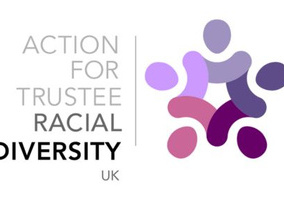Charity trustee boards fail to represent the diversity of the wider population while some lack legal skills, according to a new report from the Charity Commission and Pro Bono Economics.
The research, published today, is based on the most comprehensive survey ever undertaken of trustee motivations and skills, conducted between July and August last year.
It found a lack of diversity among trustees, with younger people and those from ethnic minority backgrounds underrepresented, but with greater gender parity than previously.
Most respondents to the survey said they felt positive about board dynamics, and their relationships with staff and volunteers.
Legal skills
Some 12% of the 2,194 trustees who responded to the survey stated that their boards had no legal skills or experience, with 23% of trustees stating that their boards sourced legal expertise externally.
Reflecting on these findings, the report says that some boards could benefit from having more legal skills and experience as complying with charity law is a “critical role for all trustees”.
While most trustees (59%) stated that their board had significant finance skills and experience, this was also the skillset with the second greatest reliance on external sources (8%).
Lack of diversity
When compared to the general population of England and Wales overall where 17% are from ethnic minority backgrounds, for trustees it is 8%.
However, there are proportionately more Black trustees aged below 60 compared to the general population (7% compared to 5%), while people of Asian heritage in that age group make up 1% of trustees compared to 4% in the older population.
Malcolm John, founder of Board Racial Diversity UK, said the trustee diversity research was “much needed” but bemoaned a lack of progress since the Charity Commission's Taken on Trust research in 2017.
“While perhaps we can’t make direct comparisons, it’s noticeable that the reported figure of only 8% of trustees from ethnic minority backgrounds compared to 17% in the general population has not shifted from 2017.
“This starkly underlines that there's lots more work to be done in promoting more inclusive recruitment and retention practices to achieve more proportionate racial diversity on charity boards.”
Meanwhile, the median age of trustees is between 65 and 69, researchers found, with 54% of trustees retired.
People aged under 45 make up 8% of trustees, the report says, with just 1% aged 30 or under.
Some 43% of trustees are female compared to 36% in 2017, researchers found, adding that smaller charities tend to have more female trustees.
They also found that there are fewer trustees from working class backgrounds (29%) compared to the UK working population (39%) and fewer trustees with disabilities (17%) than in the population of England and Wales (24%).
Encouraging more diverse trustees
Four-fifths of trustees that responded said they were likely to recommend the role to others, while three in five said the role made them feel they were having a positive impact on the world, and 38% felt more fulfilled because of the role.
The commission’s chief executive David Holdsworth said: “This rich and detailed research gives us valuable new insights into the people on whom all charities, of all sizes, ultimately rely.
“This research shows what those of us who have been trustees already knew – that while it is a significant responsibility, it is also a hugely rewarding way to have an impact on something you care about.
“I hope that in making these findings available, we can support the sector to respond, encouraging and inspiring a pipeline of committed and skilled people willing to serve as volunteer trustees into the future – and to reap the personal rewards of the role.”
Pro Bono Economics head of social sector Anoushka Kenley said: “This new research provides plenty of room for optimism, with the vast majority of trustees saying that they find their role rewarding and evidence of an improvement over recent years in the representativeness of the trustee population.
“But there is further to go, with the potential to bring even more talent and more diverse perspectives to the fore by supporting more young people and individuals from underrepresented backgrounds to take up trustee roles.
“By encouraging a more diverse range of people to become trustees, we can strengthen boards and better support communities.”
Related articles












